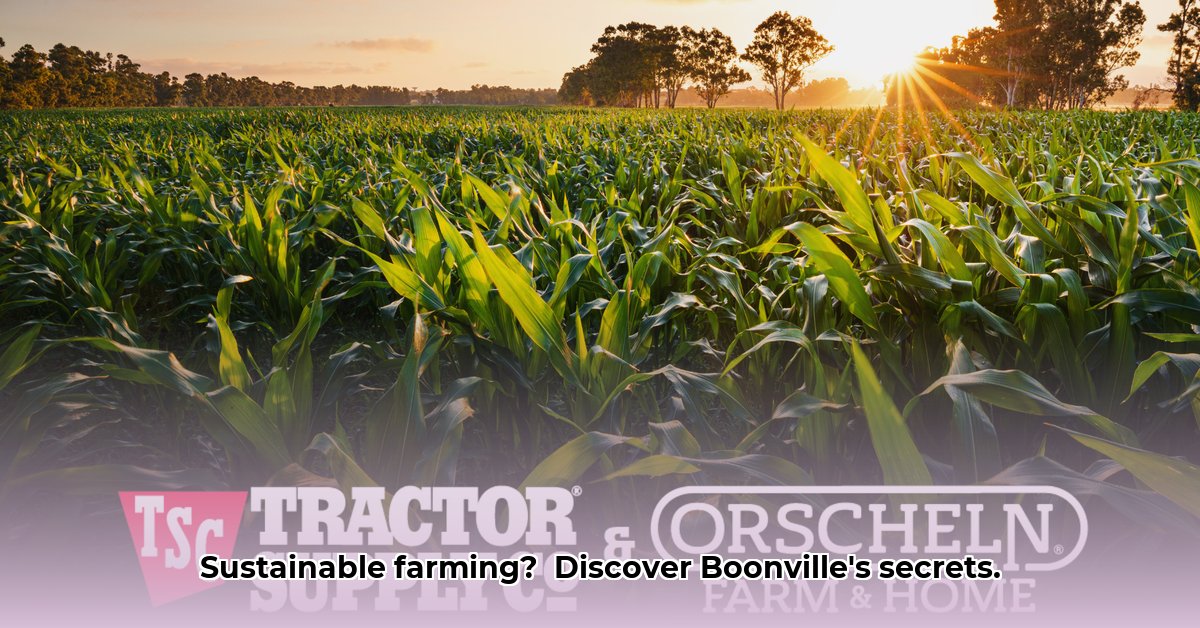
Tractor Supply Company (TSC) in Boonville, Missouri, serves as more than just a retail outlet; it's a vital community hub, supporting farmers, gardeners, and pet owners alike. This article explores TSC's role in promoting – or hindering – sustainable agricultural practices within the Boonville region, examining its business model, sustainability initiatives, and the risks it faces. We delve into how this large retailer interacts with the unique needs of a small-town community committed to both economic prosperity and environmental responsibility. For more on water storage solutions, see our guide on water tanks.
Tractor Supply Boonville: A Community Cornerstone
TSC's Boonville location is strategically situated for easy access, making it a convenient one-stop shop for a diverse clientele. Farmers depend on it for essential supplies like animal feed and equipment; gardeners find seeds, tools, and soil; and even pet owners rely on it for their companion animals' needs. This broad customer base underscores the store’s importance to the local economy. But beyond mere convenience, the store fosters community connections. Employees often have established relationships with customers, offering personalized advice and valuable expertise. In a rural setting, this personalized service—an often-overlooked aspect of rural success—is invaluable. How might this human element be further leveraged to promote sustainable practices?
The TSC Business Model: Strengths and Shortcomings
TSC's business model centers around a wide product selection, catering to the varied needs of its customer base. This breadth, coupled with the knowledge and assistance provided by its staff, creates a strong foundation for success. However, a significant limitation is the dearth of publicly available data quantifying its sustainability initiatives. This lack of transparency hinders a complete assessment of its environmental impact. Furthermore, the inherent risks of supply chain vulnerabilities—a pervasive challenge in today's economy—pose a significant threat to TSC's long-term stability. How can TSC address this lack of transparency and build trust with consumers and stakeholders who are increasingly concerned about environmental stewardship?
Sustainability in Boonville: A Mixed Bag
TSC undeniably provides access to products that support sustainable farming practices, such as organic seeds, composting equipment, and water-efficient irrigation systems. But the extent of its own direct commitment to sustainability remains unclear. While supplying these products is a positive indirect contribution, the company should be more explicit about its own environmental footprint. Where are the detailed, publicly accessible sustainability reports outlining their sourcing practices, waste reduction strategies, and energy consumption? This lack of information hampers a complete evaluation of their impact. What steps can TSC take to improve data collection and reporting on its sustainability initiatives?
Actionable Steps: Charting a Sustainable Future
TSC's future success hinges on its ability to proactively address its weaknesses and advance its sustainability goals. This requires a multifaceted approach combining short-term and long-term strategies.
1. Enhanced Transparency: Publishing a comprehensive annual sustainability report, detailing both environmental impact and future goals, is paramount. This transparency will build trust with customers and investors.
2. Supply Chain Optimization: Investing in a more robust and sustainable supply chain is crucial. This includes scrutinizing supplier practices, exploring alternative sourcing options, and focusing on relationships with companies that meet responsible sourcing standards.
3. Community Engagement: Fostering stronger community ties by partnering with local farmers and sustainable food producers can create mutually beneficial relationships, increasing transparency and shared responsibility for environmental stewardship. This could involve workshops or collaborative events that educate the community about sustainable agriculture.
Risk Mitigation: Addressing Potential Challenges
TSC faces several key risks. Supply chain disruptions, increased e-commerce competition, labor shortages, and the impact of climate change all require proactive mitigation strategies. Diversifying suppliers, investing in employee training and development, and adapting to the changing climate are crucial steps in building resilience. How can Tractor Supply leverage its unique position in the Boonville community to prepare for and adapt to these challenges?
Key Findings:
- TSC's Boonville store plays a vital role in the community but must improve sustainability transparency.
- A lack of quantifiable data on sustainability efforts hinders a full assessment of its impact.
- Proactive risk management, enhanced supply chain resilience, and community engagement are essential for long-term success.
- Transparency regarding sustainability initiatives is paramount for building customer trust and stakeholder confidence.